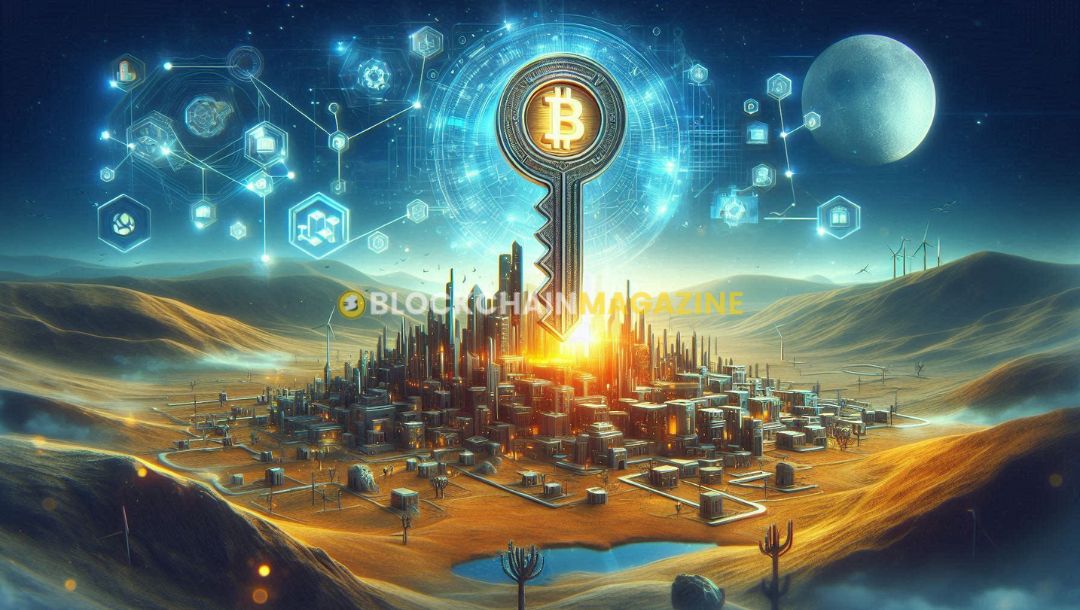Exploring Asset on a Blockchain for Short: Key Insights
Asset tokenization is revolutionizing the way we perceive and interact with various asset classes. By converting physical and intangible assets into digital tokens on a blockchain, this innovative approach promises to enhance liquidity, security, and accessibility in the financial markets. As blockchain technology continues to evolve, asset tokenization stands out as a transformative trend poised to bridge the gap between traditional finance and the burgeoning crypto economy.
Key Takeaways
- Asset tokenization involves converting tangible and intangible assets into digital tokens on a blockchain.
- This technology enhances liquidity, making it easier to buy, sell, and trade assets.
- Asset tokenization democratizes access to investment opportunities, allowing more people to participate in markets previously inaccessible to them.
- Despite its benefits, asset tokenization faces regulatory, technical, and market volatility challenges.
- The future of asset tokenization looks promising, with potential significant impacts on traditional finance and market efficiency.
Understanding Asset Tokenization on Blockchain
Definition and Concept
Asset tokenization refers to the process of recording the rights to a given asset into a digital token that can be held, sold, and traded on a blockchain. The resulting tokens represent a stake of ownership in the underlying asset. Virtually any asset, whether something physical like real estate or intangible like stock in a corporation, can theoretically be tokenized. Asset tokenization is the process of converting traditional assets into digital tokens that can be sold, held, and traded.
Historical Context
Asset tokenization is one of the most exciting areas of blockchain technology, and one that many expect to grow in the near future. While challenges remain, asset tokenization has the potential to merge the new world of the crypto economy with the old world of traditional finance, giving more people the opportunity to invest in assets currently not available to them, while also enhancing market efficiency.
Current Trends
Asset tokenization requires significant financial and technical know-how, as well as the meeting of various legal requirements. But as the step-by-step process above shows, it’s hardly inconceivable, and could foster more inclusive, efficient, and transparent markets for traditional asset classes like real estate.
Benefits of Asset Tokenization
Increased Liquidity
Asset tokenization is revolutionizing finance through real world assets tokenization on blockchain. By converting physical assets into digital tokens, it enables fractional ownership of real estate, art, and commodities. This process significantly increases liquidity by allowing these tokens to be traded on secondary markets, making it easier for investors to buy and sell assets.
Enhanced Security
Tokenized assets benefit from the inherent security features of blockchain technology. Each transaction is recorded on an immutable ledger, reducing the risk of fraud and ensuring transparency. This enhanced security is particularly valuable for high-value assets, providing peace of mind for investors.
Democratized Access
One of the most significant potential benefits of asset tokenization is the ability to democratize access to investment opportunities. Traditionally, asset classes like commercial real estate and fine art have been the province of institutional investors or the very wealthy, with high barriers to entry. Asset tokenization can break down those barriers by enabling fractional ownership of assets, meaning investors can own tokens representing small shares. This democratization of access opens up new investment opportunities for a broader audience.
Asset tokenization is more than just a technological innovation. It could be a paradigm shift in asset management, with benefits for both retail and institutional investors. The transformation of traditional assets into tradeable, blockchain-based tokens can reshape the investment landscape with enhanced accessibility, market efficiency, and security.
Risks and Challenges in Asset Tokenization
While asset tokenization presents numerous potential benefits, there are also risks and challenges that must be addressed, as is the case with any emerging technology. Let’s look at a few below.
Real-World Applications of Asset Tokenization
Real Estate
Tokenization of real estate is transforming the property market by dividing ownership into digital tokens. This makes real estate investments more accessible and easier to trade. Investors can now buy fractions of high-value properties, democratizing access to lucrative real estate markets.
Art and Collectibles
Art and collectibles have traditionally been illiquid assets. Tokenization changes this by allowing fractional ownership, making it easier to buy, sell, and trade pieces of art. This not only increases liquidity but also opens up the market to a broader range of investors.
Intellectual Property
Tokenizing intellectual property (IP) can revolutionize the way IP is managed and monetized. By converting IP into digital tokens, creators can easily license, sell, or trade their assets. This can lead to more efficient and transparent markets for IP.
Tokenization is a game-changer: it divides the ownership of these assets into digital tokens, making them more accessible and easier to trade.
Future Prospects of Asset Tokenization
Market Growth Predictions
Asset tokenization is one of the most exciting areas of blockchain technology, and one that many expect to grow in the near future. Market analysts predict significant growth in the tokenization of real-world assets, driven by increasing interest from both institutional and retail investors. This growth is expected to enhance market efficiency and inclusivity in asset management.
Technological Advancements
Technological advancements are set to play a crucial role in the future of asset tokenization. Innovations in blockchain protocols, smart contracts, and interoperability solutions will make the tokenization process more seamless and secure. These advancements will also facilitate the integration of blockchain with real-world assets like agriculture, mining, and infrastructure.
Potential Impact on Traditional Finance
The potential impact of asset tokenization on traditional finance cannot be overstated. By merging the new world of the crypto economy with the old world of traditional finance, tokenization can democratize access to investment opportunities. This means more people will have the opportunity to invest in assets currently not available to them, thereby enhancing market efficiency and inclusivity.
Asset tokenization has the potential to foster more inclusive, efficient, and transparent markets for traditional asset classes like real estate.
How to Get Started with Asset Tokenization
Choosing the Right Platform
Selecting the appropriate platform is crucial for successful asset tokenization. Evaluate platforms based on security, scalability, and user experience. Consider platforms that offer robust smart contract capabilities to enhance liquidity and security.
Legal Considerations
Navigating the legal landscape is essential. Ensure compliance with local and international regulations. Consult with legal experts to understand the regulatory hurdles and requirements specific to your asset class.
Step-by-Step Process
- Identify the asset you wish to tokenize.
- Choose a blockchain platform that suits your needs.
- Develop or utilize existing smart contracts to represent the asset.
- Ensure legal compliance and obtain necessary approvals.
- Mint the digital tokens representing the asset.
- List the tokens on a marketplace for trading.
Asset tokenization requires significant financial and technical know-how, as well as the meeting of various legal requirements. But as the step-by-step process above shows, it’s hardly inconceivable, and could foster more inclusive, efficient, and transparent markets for traditional asset classes like real estate.
Asset tokenization is revolutionizing the way we invest and manage assets. If you’re looking to dive into this exciting world, our comprehensive guide on ‘How to Get Started with Asset Tokenization’ is the perfect place to begin. Don’t miss out on the latest trends and insights in the blockchain space. Visit our website today and subscribe to stay ahead of the curve!
Conclusion
In conclusion, the exploration of assets on a blockchain reveals a transformative potential for both tangible and intangible assets. Blockchain technology not only enhances the efficiency and transparency of transactions but also democratizes access to investment opportunities that were previously out of reach for many. Asset tokenization stands out as a particularly promising development, merging the realms of traditional finance and the burgeoning crypto economy. Despite the challenges and complexities involved, the benefits of asset tokenization—such as increased market efficiency, inclusivity, and liquidity—make it a critical area to watch. As blockchain technology continues to evolve, its impact on asset management and investment is poised to be profound, paving the way for a more inclusive and efficient financial ecosystem.
Frequently Asked Questions
What is asset tokenization?
Asset tokenization is the process of converting ownership rights in a particular asset into a digital token on a blockchain. This can be done for both tangible assets like real estate and intangible assets like intellectual property.
Why is blockchain important for asset tokenization?
Blockchain is important for asset tokenization because it provides a secure, transparent, and immutable ledger for recording transactions. This reduces risks and costs associated with asset trading and enhances trust among participants.
What types of assets can be tokenized?
Virtually any asset of value can be tokenized, including tangible assets like houses, cars, and land, as well as intangible assets like intellectual property, patents, and copyrights.
What are the benefits of asset tokenization?
The benefits of asset tokenization include increased liquidity, enhanced security, and democratized access to investment opportunities. It also has the potential to make markets more efficient.
What are the risks and challenges in asset tokenization?
The main risks and challenges in asset tokenization include regulatory hurdles, technical barriers, and market volatility. Navigating these challenges requires significant financial and technical know-how, as well as compliance with legal requirements.
How can I get started with asset tokenization?
To get started with asset tokenization, you need to choose the right platform, consider legal requirements, and follow a step-by-step process to tokenize your asset. This often involves consulting with experts in blockchain technology and legal compliance.
Stay informed with daily updates from Blockchain Magazine on Google News. Click here to follow us and mark as favorite: [Blockchain Magazine on Google News].
Get Blockchain Insights In Inbox
Stay ahead of the curve with expert analysis and market updates.
latest from tech
Disclaimer: Any post shared by a third-party agency are sponsored and Blockchain Magazine has no views on any such posts. The views and opinions expressed in this post are those of the clients and do not necessarily reflect the official policy or position of Blockchain Magazine. The information provided in this post is for informational purposes only and should not be considered as financial, investment, or professional advice. Blockchain Magazine does not endorse or promote any specific products, services, or companies mentioned in this posts. Readers are encouraged to conduct their own research and consult with a qualified professional before making any financial decisions. The featured image used is just a creative depiction of the title and it does not intend to hurt sentiments of any person or institution. If it hurts anyone sentiments, please do not hesitate to reach out to Blockchain Magazine.

 Bitcoin
Bitcoin  Ethereum
Ethereum  XRP
XRP  Tether
Tether  Solana
Solana  Dogecoin
Dogecoin  USDC
USDC  Cardano
Cardano  Lido Staked Ether
Lido Staked Ether  TRON
TRON  Chainlink
Chainlink  Avalanche
Avalanche  Sui
Sui  Wrapped stETH
Wrapped stETH  Wrapped Bitcoin
Wrapped Bitcoin  Stellar
Stellar  Toncoin
Toncoin  Hedera
Hedera  Shiba Inu
Shiba Inu  Polkadot
Polkadot  WETH
WETH  LEO Token
LEO Token  Bitcoin Cash
Bitcoin Cash  Litecoin
Litecoin  Hyperliquid
Hyperliquid  Bitget Token
Bitget Token  Official Trump
Official Trump  Uniswap
Uniswap  Pepe
Pepe  Wrapped eETH
Wrapped eETH  USDS
USDS  NEAR Protocol
NEAR Protocol  Ethena USDe
Ethena USDe  Aave
Aave  Aptos
Aptos  Internet Computer
Internet Computer  Ondo
Ondo  WhiteBIT Coin
WhiteBIT Coin  Cronos
Cronos  Ethereum Classic
Ethereum Classic  Monero
Monero  Mantle
Mantle  POL (ex-MATIC)
POL (ex-MATIC)  Render
Render  Dai
Dai  Algorand
Algorand  MANTRA
MANTRA  Bittensor
Bittensor 



